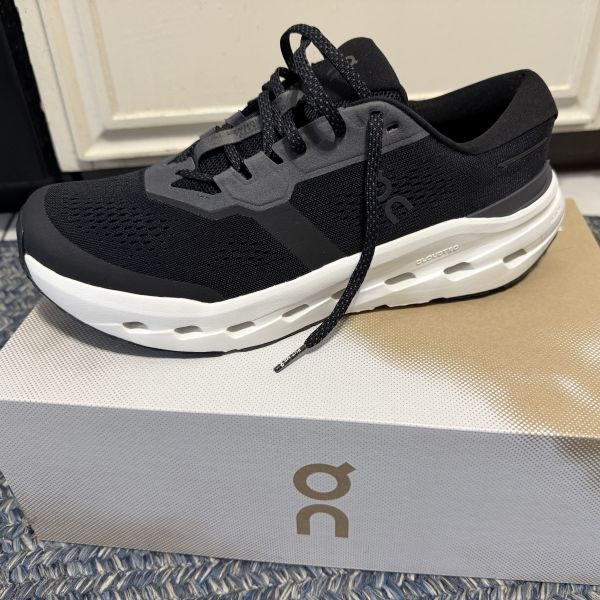Before you sign up for a ton of races in 2026, take a minute to be realistic about your running schedule.
.
Wondering how to do that when so many races look like epic adventures, big challenges, and potential PRs?
.
Before you whip out your credit card and lock yourself into an impossible race schedule for 2026, take a step back.
.
In this article, we’ll cover six questions to ask yourself to help you plan a smarter running schedule for the year ahead. .
Thinking about running a bucket-list race this year? Or maybe you've got your mind set on running a marathon?
.
Whether or not you have a race of your own on the calendar (yet...)—because there’s nothing more than the running side of social media loves than a good race day highlight reel.
.
A quick scroll makes it seem like everyone around you, from Olympians on down through hobby joggers are...
Then, if you’re anything like me, the mental spiral (and classic running mistake) starts as soon as you compare your running schedule to someone else's.
.
😭Wait, she’s racing again this weekend?
😭How did they recover so fast?
😭Am I just not trying hard enough?
The point I’m trying to make here is that the seasonal inundation of #finishlinefeels tends to trigger plenty of other feelings as well.
.
It’s easy to assume that no matter how your running schedule shakes out, it’s not enough to measure up since someone is (supposedly) always:
Sometimes, that’s true.
.
Other times, it only seems that way because the algorithm keeps sending you the same recycled content on repeat.
.
Either way, runners will inevitably find themselves in the midst of comparisons that make them question their own approach to racing.
.
Some runners thrive on ten races a year. Others would break before they get halfway to that mark.
.
That’s why there’s unfortunately no “right way” to race.
.
Quantity doesn’t matter; quality does.
.
If you race more often that your body and mind can healthily handle, prepare to compromise on the quality of your running—and the rest of your life, for that matter.
.
You can’t do all the races.
But no hard and fast rule could possibly account for the different:
The only “best racing and running schedule” is the ONE that allows you to produce your best work amidst all of those factors.
.
That’s especially true when you’re deciding what races you plan to run in 2026.
.
Today’s media landscape has turned racing into a public affair when really it should be anything but.
.
Your running schedule is your business, because no one else knows your body or your life like you do.
Whenever race FOMO strikes, ask yourself these SIX questions to decide on a race & running schedule that works on your terms.
.
Recovery is a prerequisite for racing.
🏃♀️Some runners bounce back from hard efforts faster than others.
.
There are a few things you can do to speed up that process, such as:
🧬But the rest boils down to genetics
Depending on which genotypes you possess, your body will respond to exercise differently.
Short of getting genetic testing, it’s hard to know exactly how your genes will affect your recovery timeline.
.
That’s where experiential evidence comes in. Reflect on a time when you felt at the top of your game during a race and gave everything you could.
No two race experiences are the same, so take the average of a few different data points to get a decent idea of how your body responds to racing.
.
Leave enough buffer room between races to account for the entire cycle, from base to build to taper to race to rest and back to base.
.
Racing takes a mental toll too. Running at peak speed or max distance is inherently uncomfortable.
.
😖The brain fog that comes from maxing out your cognitive load like that can linger for days to weeks after finishing a race.
👉Go through the same reflective exercise as before, but consider the mental side of your race experience.
Don’t put another race on the calendar without making sure you get enough of a break from the daily grind to remember why you love it and learn how to keep improving.
.
Runners like to say that running helps them deal with stress, and it very well might.
.
But running is also its own form of stress. That’s the point.
As I mentioned above, your body needs time to recover from the stress of running and racing. So does your mind.
.
But in order to do that, runners need to evaluate their relationship with stress first.
.
😯Consider how you think about stress:
Most people fall into anything but the final category.
.
If you want to race more often, make it a goal to improve your relationship with all kinds of stress across the board.
.
The more you race, the more you open yourself up to potential failure.
✅There’s nothing inherently wrong with failure.
😭But failure also hurts.
Racing often means failing often, or at least laying yourself bare to the possibility of failing. Sit with that thought before hitting “add to cart.”
.
With that in mind, your race goals play a part in deciding the races you do.
😃For some runners, that’s OK.
Other runners don’t have the same self-control or self-compassion. Still others just love the feeling of flying so much that they don’t want to race unless they’ll be able to tap into that high.
.
🏃♀️You probably can’t PR every month. Big goals take time. Race less to race hard.
.
As previously discussed, stress is stress, no matter where it comes from.
.
For example:
👉Choose your battles.
.
Some seasons of life pack more of a punch than others.
.
At those times, more races on your running schedule won’t do your performance or your sanity any favors.
.
Consider whittling things down to the ones you care about most so you’re unquestionably stoked for them—not resentful of yet another “to-do.”
.
Racing shouldn’t feel like an obligation.
Tell us about your favorite race or Create a WeeView and give us all the details.

Login to your account to leave a comment.





We Want to Give it to You!
